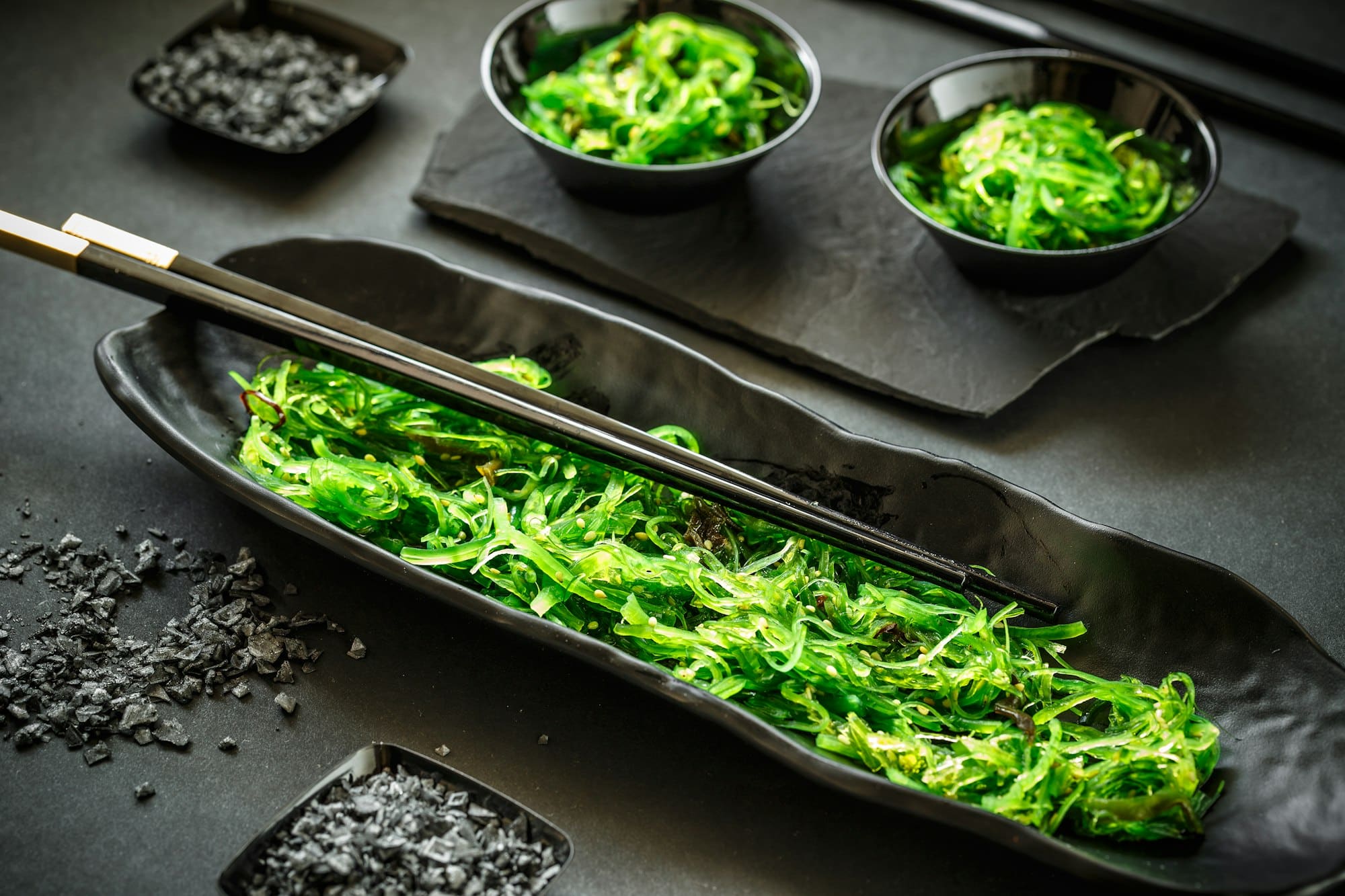When you think about improving your health, adding seaweed to your diet might not be the first thing that comes to mind. However, this sea vegetable offers a wealth of health benefits, especially for your thyroid. The high iodine content in seaweed, particularly kelp, can help maintain healthy thyroid function. It’s essential for the production of thyroid hormones, which regulate a host of bodily functions including metabolism, digestion, and heart rate. Let’s delve deeper into how incorporating seaweed into your diet can benefit your thyroid health.
Seaweed and Iodine: A Vital Combo for Thyroid Health
Seaweed, a common food in many Asian diets, is a rich source of iodine. This essential mineral plays a significant role in thyroid health. The thyroid gland uses iodine to produce hormones, which are crucial in regulating metabolism and other vital bodily functions.
Lire également : Does the Regular Practice of Autogenic Training Alleviate Symptoms of IBS?
Kelp, a type of seaweed, is particularly high in iodine. Just a small portion of dried kelp can provide the daily recommended intake of this crucial mineral. If you’re struggling with thyroid conditions such as hypothyroidism or goiter, increasing your iodine intake from sources like kelp might be beneficial.
However, it’s not just about iodine. Seaweed also contains other nutrients like vitamins A and C, calcium, and antioxidants, which contribute to overall health. Remember, your body doesn’t produce iodine naturally, so it’s important to consume it through food or supplements.
Sujet a lire : What Are the Best Approaches for Encouraging Physical Activity in People with Severe Mental Illness?
The Role of Iodine in Thyroid Function
The thyroid, a small, butterfly-shaped gland at the base of your neck, is the body’s thermostat. It controls how your body uses energy and regulates many functions, from heart rate and blood pressure to body temperature and digestion.
Iodine is essential for the production of thyroid hormones. Without adequate iodine intake, your thyroid may struggle to produce these hormones, leading to health problems. These issues can range from fatigue and weight gain to more serious conditions like goiter or hypothyroidism.
Seaweed, with its high iodine content, can help support healthy thyroid function. Increasing iodine intake from natural food sources like seaweed can potentially alleviate symptoms associated with these conditions. Additionally, iodine contributes to cognitive function and fetal development, making it a vital nutrient for everyone.
Seaweed: A Healthy Addition to Your Diet
Incorporating seaweed into your diet is easier than you might think. Whether in sushi, soups, salads, or as a snack, seaweed offers a unique flavor and a host of nutritional benefits.
Dried seaweed snacks are a popular choice. They’re light, crispy, and often come with a dash of sea salt for flavor. You can also use dried seaweed sheets for homemade sushi or add them to your favorite salad for a nutritional boost.
Seaweed salads, often made with wakame, are another delicious option. You can find these in most Asian supermarkets or make them at home. Seaweed soups and stews, such as the traditional Korean dish Miyeok-guk, are also popular ways to incorporate this sea vegetable into meals.
Remember, while seaweed is a healthy food, it’s crucial to consume it in moderation due to its high iodine content. Excessive iodine intake can have adverse effects, including thyroid gland inflammation or thyroid cancer.
Potential Effects of High Iodine Levels
While iodine is essential for thyroid function and overall health, it’s important to note that too much iodine can also lead to issues. Excessive iodine intake can cause hyperthyroidism, a condition where the thyroid produces too many hormones.
Symptoms of hyperthyroidism include rapid heartbeat, weight loss, nervousness, and difficulty sleeping, among others. In some cases, excessive iodine intake can also lead to the opposite condition, hypothyroidism, where the thyroid gland doesn’t produce enough hormones.
Therefore, it’s crucial to maintain an appropriate balance. The recommended daily intake of iodine for adults is 150 micrograms. If you’re considering adding seaweed to your diet for its iodine content, it’s important to keep track of your overall intake and consult a healthcare provider for personalized advice.
In conclusion, seaweed can be a beneficial addition to your diet, particularly for supporting thyroid health. However, it’s crucial to consume it in moderation due to its high iodine content. As always, consult with a healthcare provider before making any significant changes to your diet or supplement regimen.
Exploring Different Types of Seaweed
Seaweed is a term that covers a variety of marine plants and algae that grow mostly in salty waters. There are several types of seaweed, and they all contain varying amounts of iodine. Notably, the iodine content in seaweed varies according to the type and the waters where they grow.
Among the most common types of seaweed is kelp, known for its high iodine content. It’s a type of large brown seaweed that grows in ‘underwater forests’ in shallow oceans. Kelp is often used in health supplements and as a salt substitute due to its rich mineral content.
There is also wakame, a type of brown seaweed often used in salads and soups. It’s a good source of vitamins A and C, calcium, and iodine. Another popular type of seaweed is nori, which is dried and used to wrap sushi. Nori is not as high in iodine as kelp, but it’s still a good source and is also rich in vitamins A and C.
Then there’s sea moss, also known as Irish moss, which has gained popularity recently for its potential health benefits. Sea moss is a good source of iodine and other essential minerals and vitamins. Incorporating different types of seaweed into your diet can allow you to reap the benefits each type has to offer.
Seaweed and Weight Loss: A Potential Benefit
Beyond thyroid health, incorporating seaweed into your diet could potentially aid in weight loss. This is primarily due to its high fiber content, which can help you feel fuller for longer, reducing the likelihood of overeating. Additionally, seaweed has been found to contain alginate, a natural fiber that can help suppress fat digestion in the stomach, leading to reduced calorie intake.
Seaweeds like kelp are also low in calories, making them a guilt-free snack option. Plus, the iodine in seaweed can help regulate your metabolic rate, which is essential for weight management. However, it’s important to note that while seaweed can support weight loss, it should be part of a balanced diet and healthy lifestyle.
Conclusion: Seaweed for Thyroid Health and Beyond
To wrap up, seaweed, with its high iodine content, presents a myriad of benefits, particularly for thyroid health. It plays a vital role in maintaining healthy thyroid function by aiding in the production of thyroid hormones. Furthermore, with its rich assortment of nutrients like vitamins A and C, calcium, and antioxidants, seaweed contributes to overall health.
While it’s a fantastic addition to your diet, remember that seaweed should be consumed in moderation due to its high iodine content. Consuming excessive iodine can lead to complications, including thyroid inflammation or thyroid cancer. Therefore, it’s essential to monitor your iodine intake and consult with a healthcare provider if you plan to significantly increase it.
Incorporating different types of seaweed like kelp, wakame, nori, and sea moss into your diet can offer varying amounts of iodine and other nutrients. Plus, it could potentially aid in weight loss due to its high fiber content and ability to regulate metabolism.
Adding seaweed to your meals not only enhances the flavor but also boosts the nutritional value. Whether in soups, salads, sushi, or snacks, there are numerous ways to enjoy this sea vegetable. Remember, a balanced diet, coupled with a healthy lifestyle, is key to good health. So, venture out and explore the world of seaweed – your thyroid and overall health will thank you.






